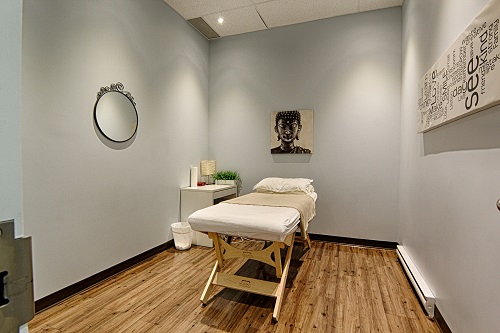Yes, winter has officially arrived! Younger ones are building snowmen, making snow angels or paying hockey outside with the neighbours. Meanwhile, adults are stuck with the less fun tasks like shovelling… What about family activities? Are you leaving for a full day of cross-country skiing or snowshoeing anytime soon? Or are you planning a ski or snowboard weekend away? Are you going skating with friends? In all of these cases, it is important to be prepared and listen to your body! Indeed, when first snowstorm arrives, people get excited and shovel their entire driveway all at once. Aches and pains are often experienced on the following day. From one year to the next, we always seem to forget what we learned and make the same mistakes. However, why not make this year different? Try to prevent back, leg, shoulder and elbow pain. Like any new activity, remember that your body is not yet adapted to these new movements. If you are demanding too much from them right away, it is normal for muscles to be sore for a few days. Give your body time to build strength and endurance as the season goes on, but remember, you have to start slowly! Plan your time and take some rest periods. At first, try just removing snow from your balcony or your car. Then, take a break so that your body has time to restore its’ energy supplies. Initially, 15, 30 or 60 minutes may be enough depending on your physical condition and the intensity at which you exercise. Most importantly, you must be aware of the different signs, or signals, that your body sends you. If you feel that your muscle are fatigued, sore or just feel exhausted, you have done enough already! Remember that you want to PREVENT injuries by SLOWLY increasing your activity duration and intensity. The muscles you use to shovel have not been used since last year, so give them time to adapt to your demand.
Do you also enjoy skiing, snowshoeing, skating? The same principle applies! To prevent aches, pains and injuries, the key is to slowly increase your activity duration and intensity level. It is well known that alpine ski accidents occur mostly in the late afternoon when people have been active for many hours. Your body is tired, your reaction time is slower and therefore you are more likely to fall down and hurt yourself. Be aware of the other people around you as well, because an accident happens very quickly. Consider snowshoeing or skiing only a few hours to half a day on your very first outing. Then, gradually increase your activity time. This year, prevent soreness and pains! Go PROGRESSIVELY! If you need help with those aches and pains,click here to book an appointment with a physiotherapist today at 514-684-9073!

